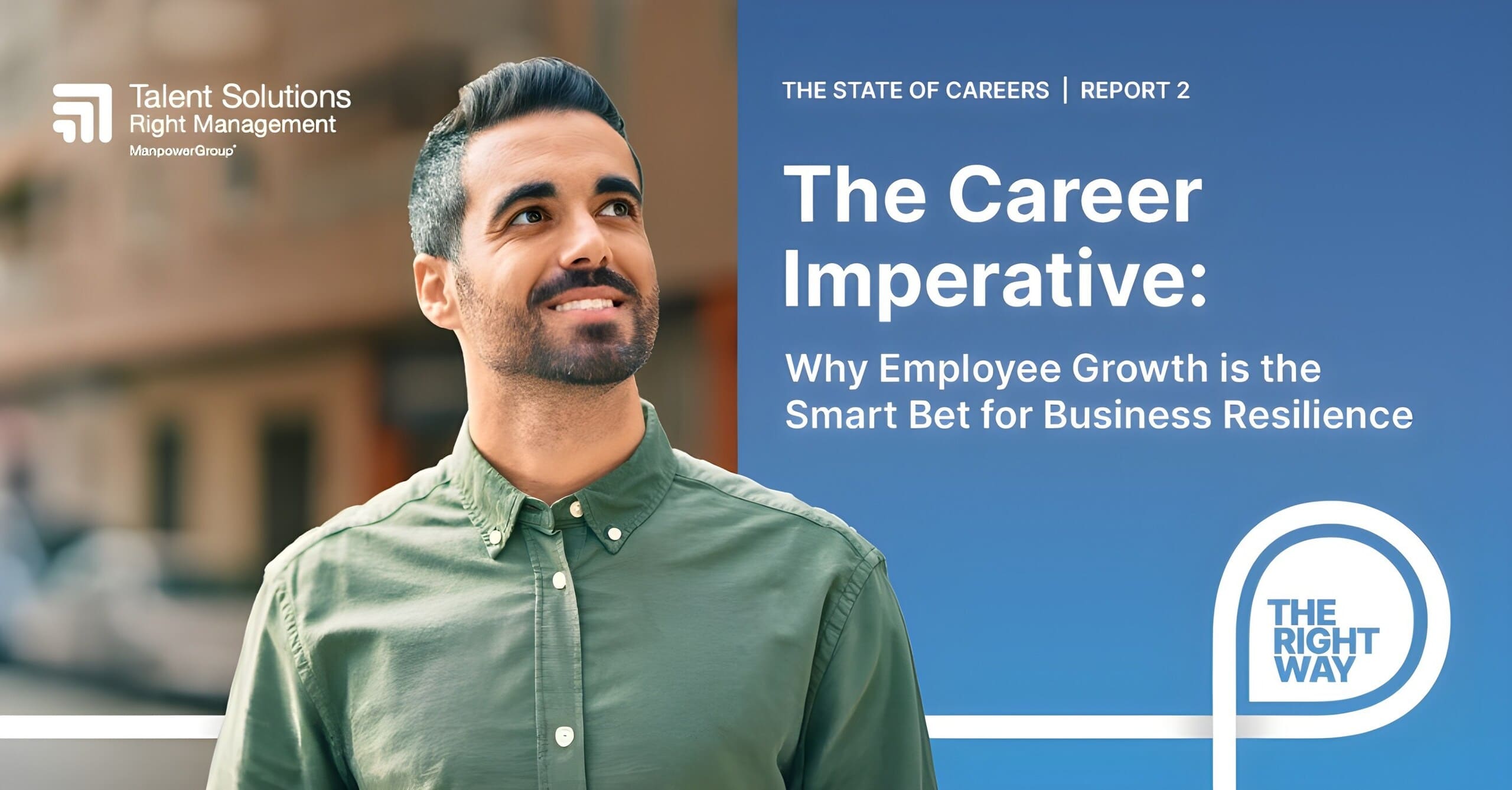Following “The Career Equation: What Attracts Talent Isn’t What Keeps Them”, new Right Management report shows how to close the gap.
With 40% of today’s skills expected to become obsolete within five years, career development is no longer optional—it’s business critical. Yet new research shows most organisations are failing to help employees navigate what comes next.
Right Management, a global leader in talent and career management solutions and part of the ManpowerGroup family of brands, released the latest instalment in its 2025 State of Careers series. The new report, “The Career Imperative: Why Employee Growth Is the Smart Bet for Business Resilience“, builds on insights from the first report, “The Career Equation: What Attracts Talent Isn’t What Keeps Them“. It offers a data-driven roadmap for organisations to reimagine career development as a strategic driver of workforce agility and long-term business success.
As AI disruption, skills-based hiring, and evolving work models transform the world of work, the research reveals a widening gap between employee ambition and organisational support—and how closing that gap can unlock engagement, retention and resilience.
“Career support is too often treated as an event, not a journey,” said Caroline Pfeiffer Marinho, SVP and Global Business Leader for Talent Solutions Right Management. “Employees need space to test out new roles and skills to shape their own future, and organisations need aligned and engaged teams to thrive. This report shows how to build a culture where careers live and breathe as part of your business, because so does work.”
Key Findings from the Report
- Career planning is broken: A staggering 4 in 10 employees have no career plan, and only 4% have a clearly documented path.
- Managers aren’t guiding growth: One in five employees say their manager helps map a career path, and just 15% report receiving clear organisational guidance.
- Learning preferences are evolving: Employees increasingly favour mentoring, internal mobility and sponsored external courses over static training programmes.
- Awareness is low: More than one-third (35%) of employees globally are aware of the development opportunities available to them.
- AI accelerates change: Within five years, 39% of today’s skills will be outdated, making career navigation a business-critical capability.
- New models are emerging: Skill-based structures and career navigation platforms are already reshaping how leading companies develop their people.
These findings highlight the urgent need for organisations to build cultures of continuous learning and growth.
“Across Europe and the world, organisations are facing rapid transformation — from AI disruption to shifting workforce expectations,” said Barbera de Graaf, SVP for Right Management Europe. “To stay competitive, organisations must move beyond traditional career planning and embrace on-the-job learning and coaching as strategic tools. ‘The Career Imperative’ offers organisations a roadmap to build agile, resilient teams through meaningful career and skills support.”
A Call to Action for 2026 and Beyond

To help leaders act on these insights, “The Career Imperative” introduces a forward-looking framework for future-ready career development, urging organisations to:
- Replace rigid career ladders with flexible career pathways
- Make skills the backbone of internal mobility
- Treat AI as a strategic teammate, not a threat
- Empower managers to become career navigators
- Encourage career experiments to foster agility
- Embed learning in the flow of work










